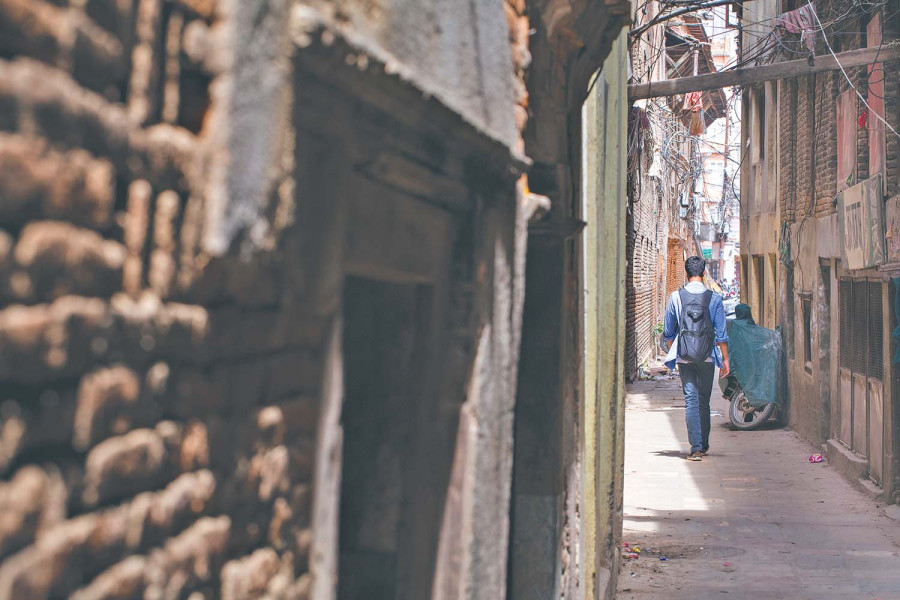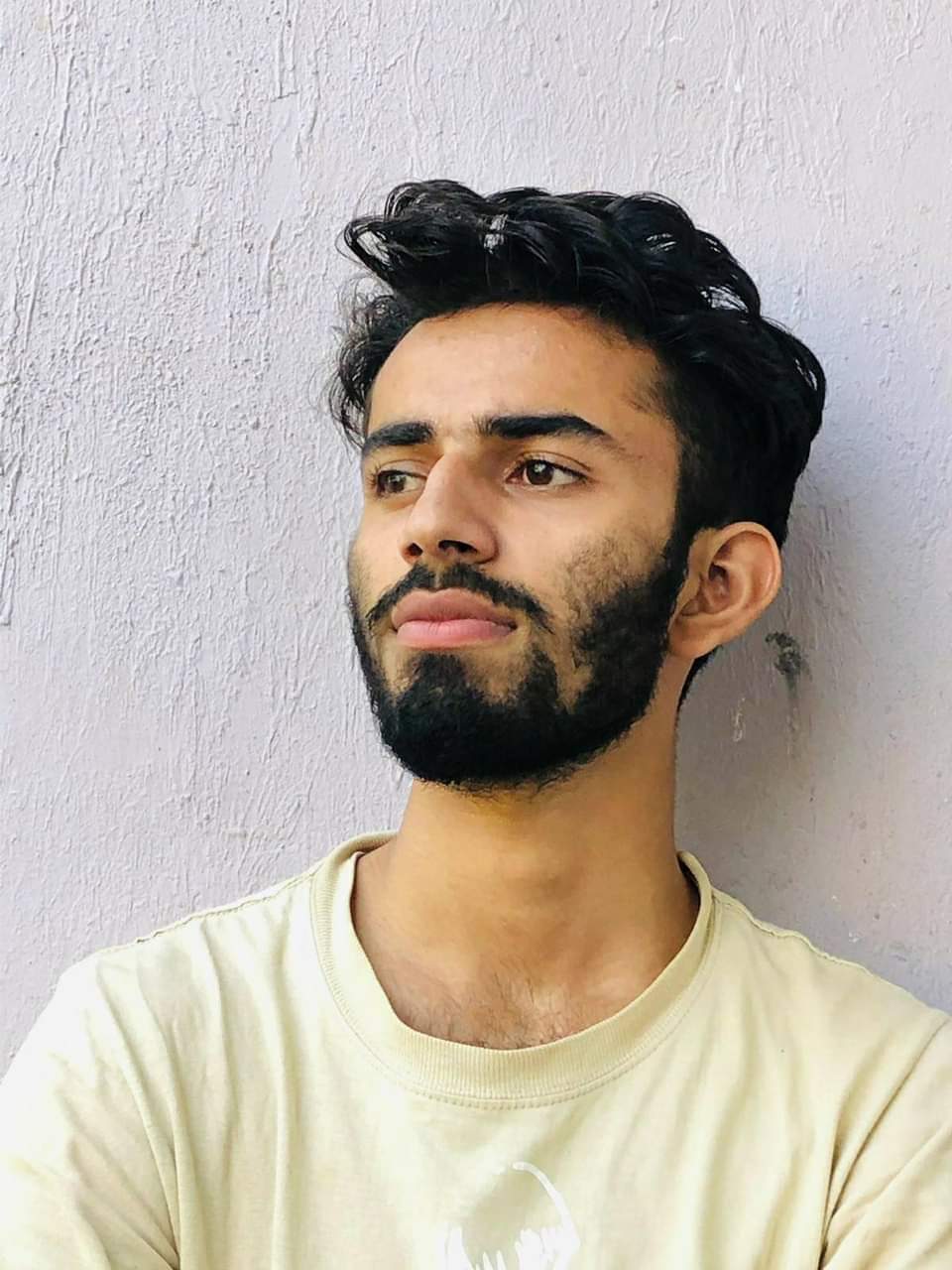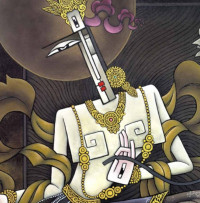Culture & Lifestyle
Pun Dai is a quiet man
Some people are like flowers; they serve no purpose other than to be beautiful. They enhance the world, much like flowers adorn the garden.
Sugam Gautam
Pun Dai lazily rubbed his eyes, yawned, moved towards the window, and looked at his wristwatch—his eyes blurry with tears from his routine afternoon nap. Although he knew the wristwatch had stopped working long ago, he couldn’t help but glance at it every time he needed to figure out the time. Smiling to himself—like he always did—he switched on the light and tilted his head to look up at the clock above the window.
His dark room lit up now. The otherwise neatly kept room was cluttered with dishes on which he had eaten his meal before he slept. In an hour, when the clock struck 4, he would step out of his home, walk through the neighbourhood for some 15 minutes, and grace the lush ground of Basundhara Park.
As Pun Dai shyly walked, smiling under his grey cap, onlookers could tell that the man was heading nowhere but to the spot where some young people played cricket, football, and other sports.
“If only this Pun takes off his hat and looks at his balding head, will he realise that he needs a partner. But no! He’s getting old, doing the rounds of that park,” idle shopkeepers would sit on their porches as Pun Dai ambled past them. From a distance, the gang playing cricket would recognise Pun Dai, thanks to his devotion towards the blue outfit. He would come and shake hands with everyone, the calm smile not escaping his lips even once. Regulars were used to his generosity; no one would wonder why he let others bat, although he was more skilled than most others. “You do. You do. I’ll do it later.”
It seemed as though Pun Dai had been chanting those words since birth. Sometimes players fought over trivial issues, like if someone manipulated the run count. More than twelve years had gone by since he first stepped onto this playing space, and there was no record of raised voices against him. No one dared to dislike him. One couldn’t dislike him even if they forced themselves.
People like Pun Dai are predictable and are often taken for granted. Such people just lend their ears to those in need and soak up the stories without giving anything anyway. They are burdened with the world's worries, their predicaments weighing them down, but refusing to contort their face in agony and desperation. They fake their nonchalance, and are not the truest souls, for they conceal their raw emotions and instincts. But it’s guaranteed that they can never hurt others. Pun Dai could give his life, but would never hurt others, either physically or emotionally. People like Pun Dai can be counted on fingers.
As Pun Dai walked down the steps to the park, his eyes paused at seeing the dense rain in the nearby forest. He felt a big, cold drop of water on his wrist, too. The boys were indifferent to the rain that would engulf the park in a jiffy. Realising the boys had already seen him and it would be rude to turn around to head back home, Pun Dai dashed towards the boys, and by the time he reached them, rain had already intensified. The boys, screaming their lungs out, scampered towards the other gate, where their motorbikes were parked.
Pun Dai chased them, and everyone stopped for a cup of tea. The rain was making it tough for them to ride the bikes, so they stopped by a tea shop that was infamous for its bland tea. Over cups of tea, they discussed how this year’s monsoon would sweep away thousands of households, how the new cricketing season would fare, and how much they loved coming to this park.
“I’ll be going on a summer project to Kathmandu tomorrow. I don’t think I’ll come before a month,” a long-haired Manoj lamented, slowly lifting a cup to his mouth. Manoj looked as if he was parting from his family for good. He stared into the cup without gulping it, and a voice broke his reverie.
“Tell me, what is the project about?” an overexcited Sijan chimed in. This bunch of guys always looked up to Manoj because he had already started earning in six figures thanks to his proficiency in IT. “It’s the same boring job—sitting all day long in front of computers. A company has hired me for a month to work on their project, and I’ll have to work under their supervision,” Manoj sounded tired, his voice culminating in a suppressed sigh.
Words of praise were exchanged, and as the rain took a more violent form, more cups of tea were ordered and a glass of lemon water for Pun Dai. Everyone argued that Manoj’s job was luxurious, except for such touring projects as he worked remotely from home, without totally committing to any organisation. Everyone asked everyone how their day passed in their respective jobs and businesses.
But, as always, Pun Dai was spared from it. He hardly contributed to the conversation, only listening to the boys talking about their highs and lows, happiness and sorrows. It seemed as if there was an unspoken rule of not asking Pun Dai about his hustle, his quest in life, and his ultimate dream. And there was no way Pun Dai would ever talk about himself.
Has Pun Dai ever been useful to anyone? Most probably, he hadn’t, yet people had soft space for him in their hearts. Some people are like flowers; they serve no purpose other than to be beautiful. They enhance the world, just as flowers decorate the garden.
Usually, they would play until dusk set in, to the point that the ball could no longer be seen. Now, even as the rain stopped and the sky opened up, they decided against playing because the pitch would be wet and sticky. When it was time to pay, everyone looked at Manoj, hinting that the bill was on him. Didn’t he say that he was going on a month-long project? The gang at least deserved the tea party, if not more. Out of habit, Pun Dai dug his hand into his pocket and fished out a Rs50 note. Seeing Pun Dai try to pay his share, Manoj snapped, “Arey dai! It’s on your brother. I’m paying it.”
Without protesting, Pun Dai agreed and stuffed the note inside. A Rs50 note in his pocket was another constant apart from his blue attire. The pension received by his mother for her late husband’s governmental service was more than enough to sustain the family of two. There was always a wad of money in the living room’s drawer, but Pun Dai would pluck out a Rs50 note daily.
His mother wondered what he did with that money, and often wished that he spent more money, perhaps by going out to a cafe with a gorgeous woman. As for his marriage, she had stopped nagging him lately, convinced that he would remain happy this way. She doubted a modern woman would approve of him, his quiet ways, and his purposeless life. But he would need a companion to live with after her death, and the prospect of her son living alone constricted her chest at times.
Everyone got on their bikes, and when Pun Dai was asked if he needed a ride back home, he denied it, as always. The first rain of the monsoon had presented Pun Dai with the opportunity to stroll through the pristine neighbourhood of Barahi Ghat, a place he hadn’t visited much recently. He had become thirty-three last month, and being a resident of Pokhara, he had never once stepped into the posh cafes of Barahi Ghat. It didn’t matter to him, not a bit.
As he navigated the streets filled with the strong aroma of coffee, he remembered his bideshi maiju (aunt abroad) who had refused to drink the instant coffee at his house. Afterwards, he had accompanied her to the nearby cafe in his neighbourhood, where, on her maiju’s insistence, he had eaten a walnut brownie, whose taste didn’t please his buds.
A rain-washed forest seen from the ends of Lakeside was a pleasing sight, propelling Pun Dai to walk more, and smiling and observing, he took the turn down to the green banks where it was almost a shame to go without a partner. A vast water land expanded before his eyes, and couples sat holding their hands and watching the still water. Pun Dai took off his cap, wiped his balding head with his left forearm, and decided to sit cross-legged on the slightly wet grass. A couple nearby Pun Dai were clinging to each other, arms intertwined, and faces so close he had never seen before.
As the romance unfolded before his eyes, his blood rushed, and the memory from his last visit to the barber’s shop flooded his consciousness. He closed his eyes and recalled how the barber had held his head and trimmed the sides of his hairline. Though he tried to fight this thought, it didn’t go away, but instead, he found his fingers feeling his sparse hair, perhaps wanting it to grow so that he could go to the barber’s shop.




 21.12°C Kathmandu
21.12°C Kathmandu















